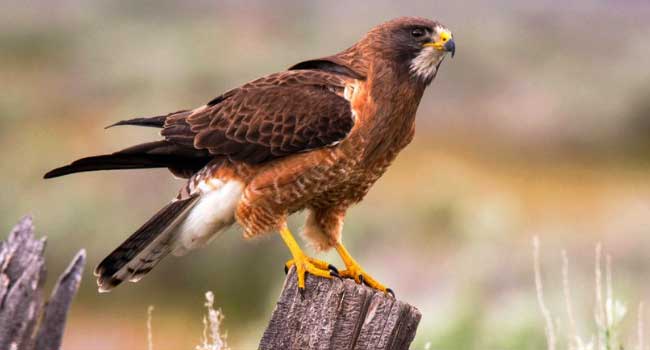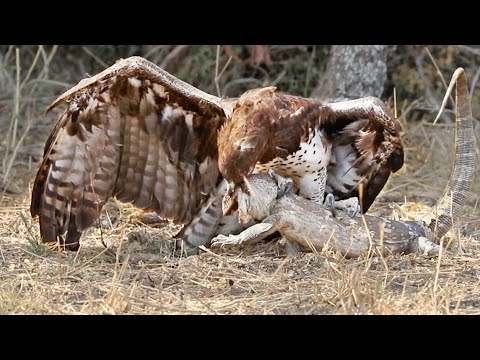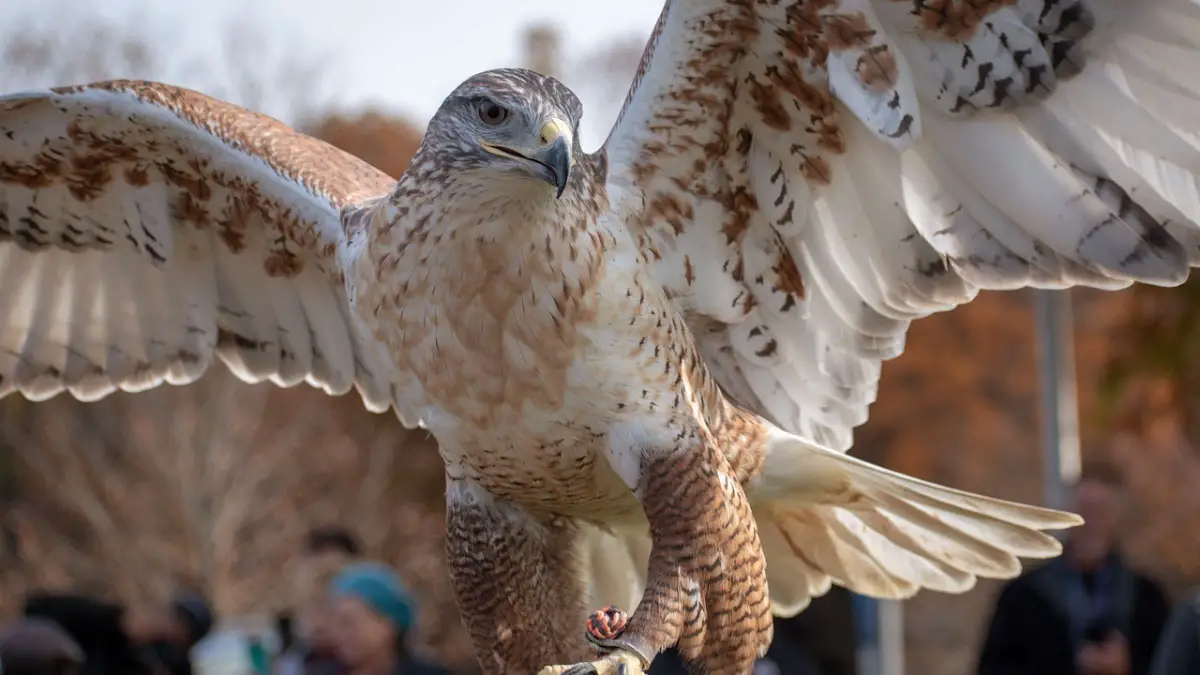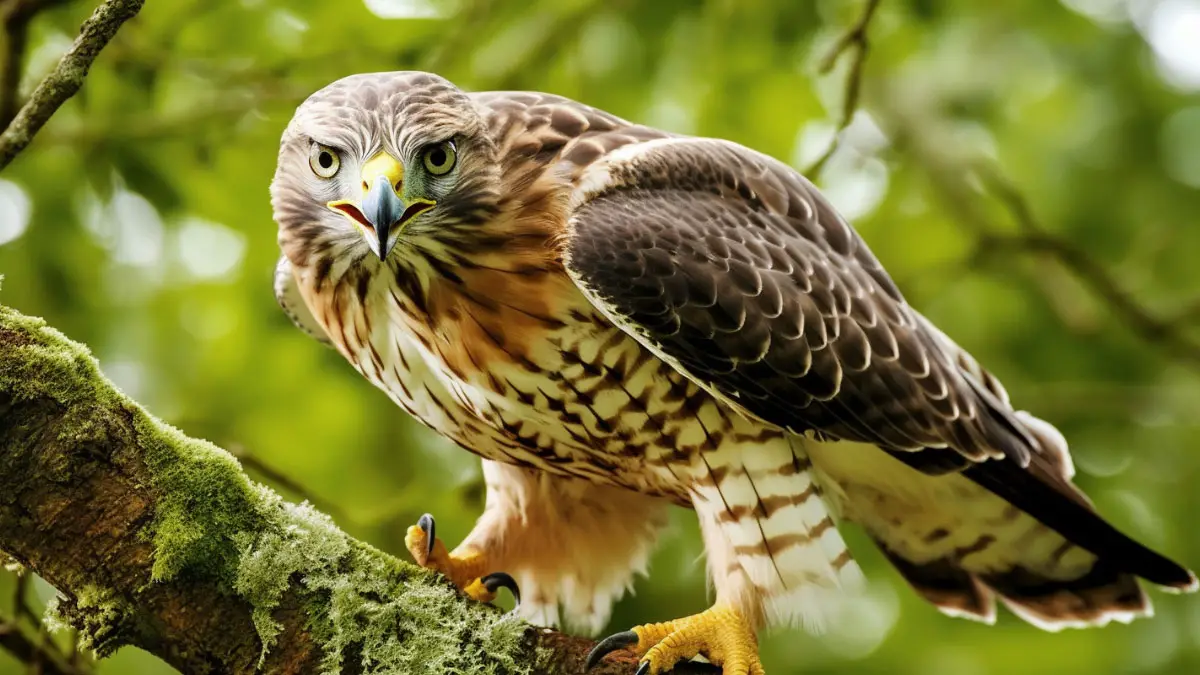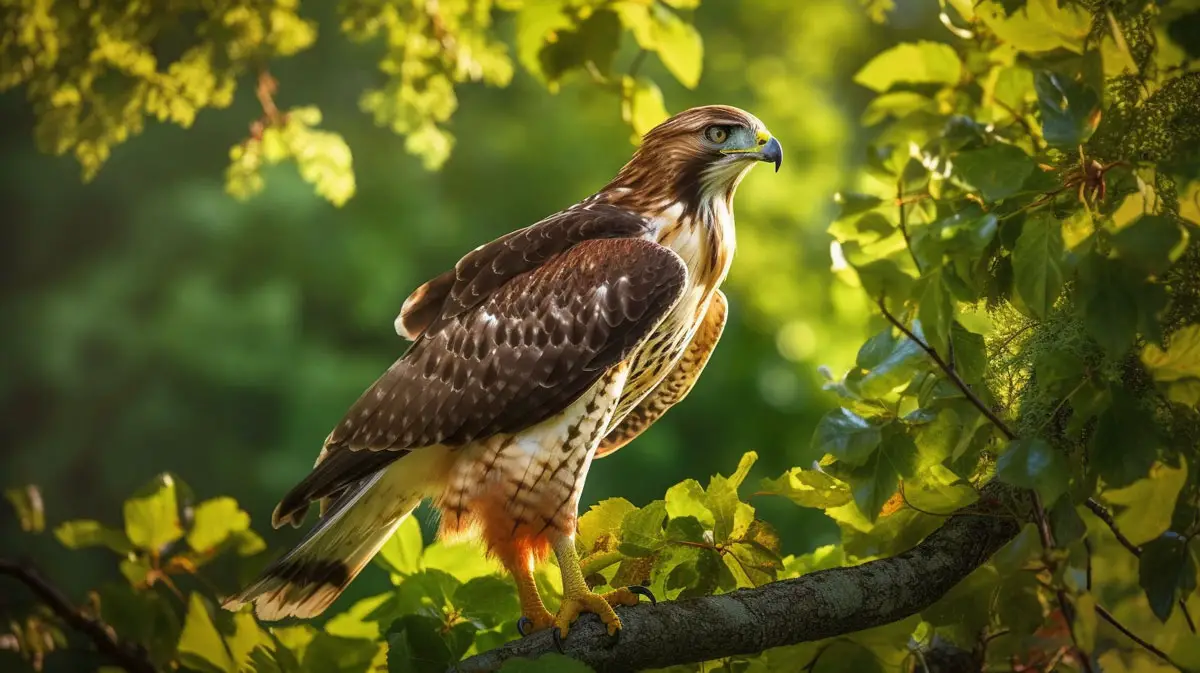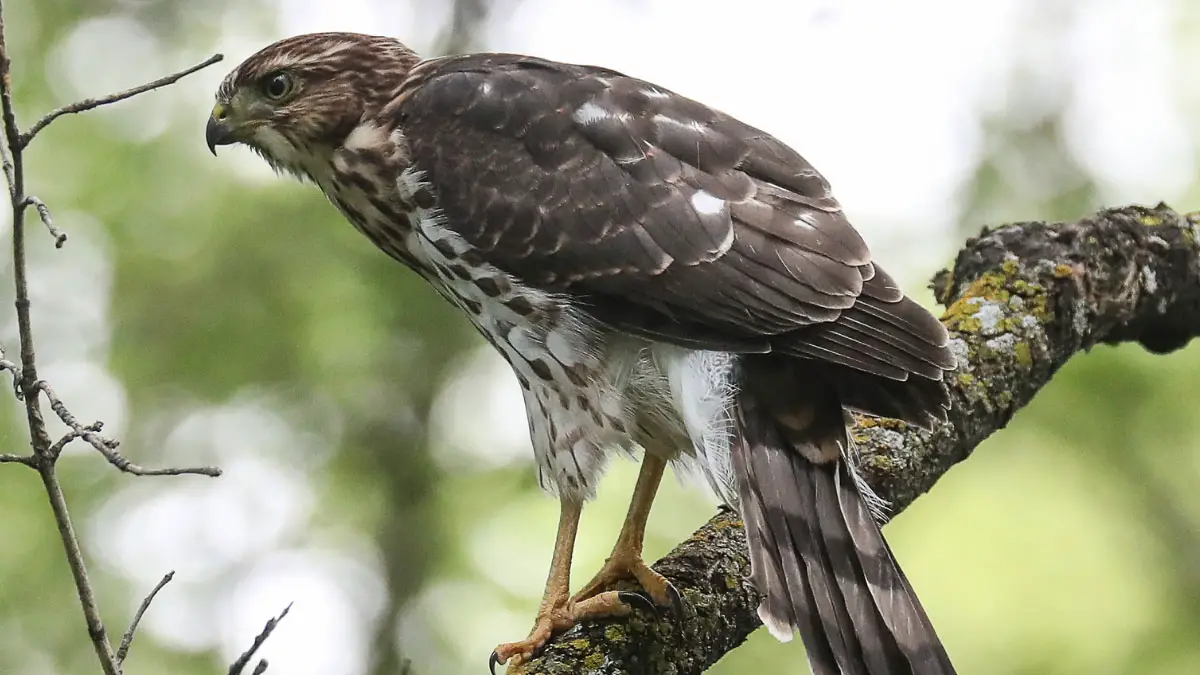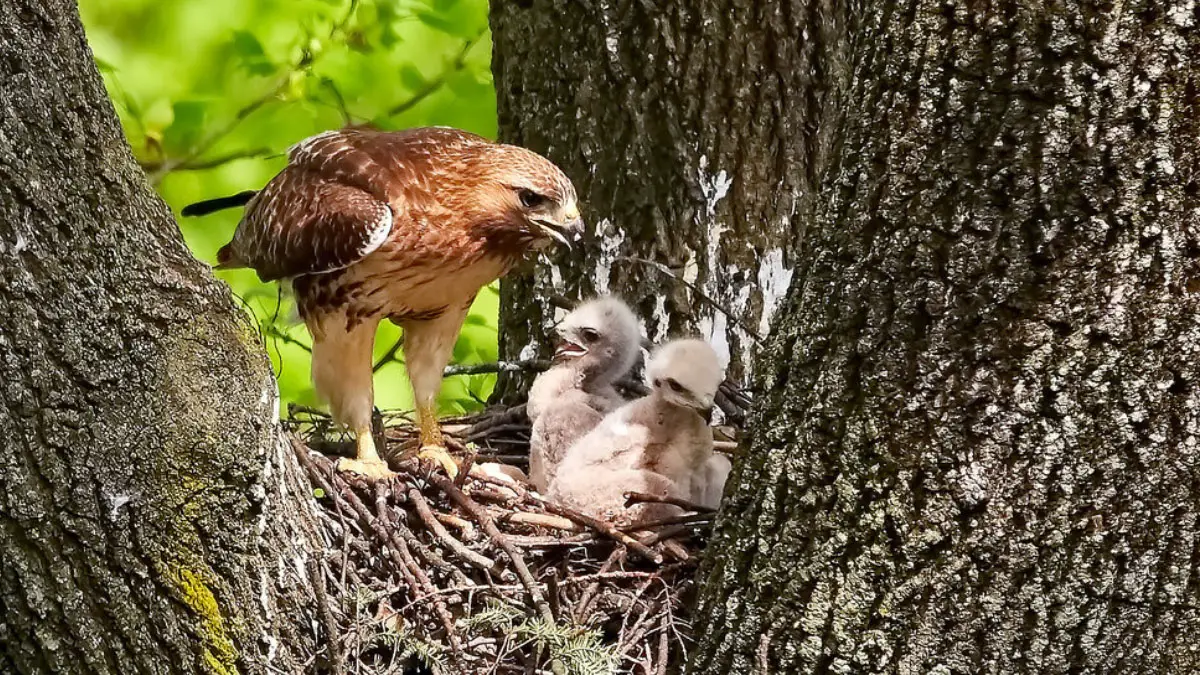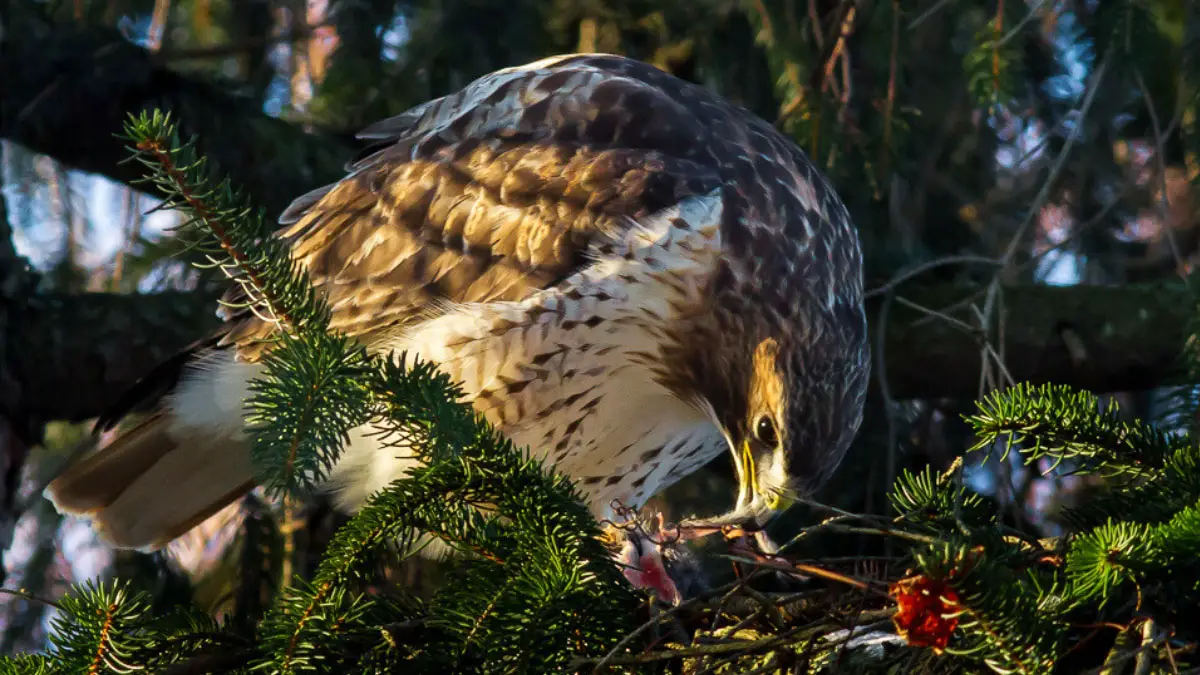Hawks living in deserts or arid regions frequently dine on lizards. But a hawks diet list includes a lot more. And we can guess why you’re so surprised.
Do hawks eat lizards? Yes, hawks eat lizards if they ever spot them. Lizards occupy most of the landmasses, and that’s why they are a common diet for raptors like Hawks. Hawks don’t prey on lizards just because they are hungry. Instead, they hunt lizards as they are easy to catch.
Not every species of hawk preys on lizards. It depends on the type of hawk and the area. Here we are breaking down everything regarding hawks preying on lizards.
Why Hawks Hunt Lizards?
Hawks are natural predators. They are carnivorous; especially the Red-tailed hawks are formidable birds of prey. Hawks hunt a variety of prey, including lizards, ground squirrels, mice, rabbits, small birds, dead animals, and in some cases, larger birds.
It’s not like they are running out of food sources. Some hawk species living in North America, Arizona, and Mexico primarily hunt lizards. There are three reasons behind that:
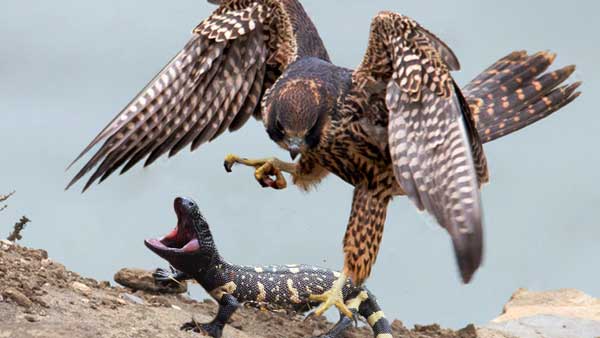
Hunting Lizards is Easy
Generally, a hawk will catch a lizard after spotting it. Now, we know spotting a lizard is not easy for us humans. The patterned mud-color and textured bodies allow a lizard to blend with the ground.
But Hawks are notable for having extremely sharp eyesight. Their 20/2 eyesight is eight times more acute than a normal human eye. So, it’s easy for them to spot a lizard.
This should be true for almost every type of prey. But if you consider the North American region, there are plenty of species of lizards. So, lizards often become the primary food source for hawks.
You see, lizards are ectotherms. It means they need sunlight in order to preserve body temperature. That’s why they keep close contact with the ground. And that makes them a primary target for hawks.
Even a common hawk can fly more than 100 mph. That’s crazy fast. On the contrary, a lizard’s speed won’t exceed 15 mph. So, escaping through speed is not an option for any lizard.
There’s more. Consider the size of a lizard. Yes, their size varies among different species of lizards. Usually, a gecko lizard is about 0.8-inch, and the largest one is a monitor lizard (about 3-meter). So, large-winged hawks can easily snatch them.
Roadside hawks often prey on small lizards. And larger hawk breeds lash out at bigger ones.
Note: As you can see! Lizards are not a favorite food for hawks. However, larger hawk species hunt them for convenience instead of actual hunger.
If the Hawk is Living Near Desert Areas
As a member of the Raptors or Birds of Prey family, hawks always seek an opportunity to spot prey. There are some cases where they target larger animals such as mountain goats.
Even this opportunistic creature faces turmoil in desert areas. Well, they can hunt insects or reptiles to survive. And lizards are the breeding populations in a desert. This is another reason why you find broad-winged hawks targeting lizards.
It’s all part of the plan for nature.
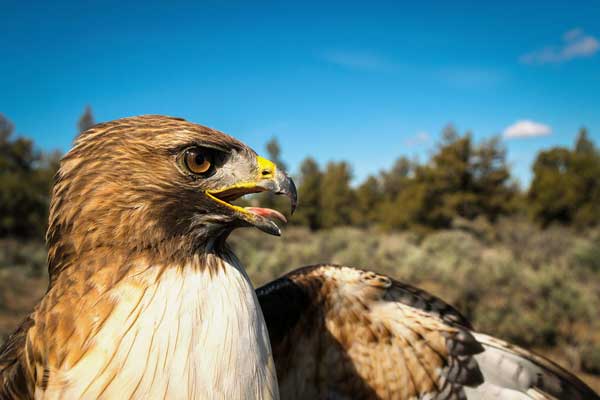
A Favorite Food for Baby Hawks
When there’s a mouth to feed, you have to be faster. As it turns out, lizards are easier and faster to catch. Not only that, hawk hatchlings seem to love lizard meat.
Whether the lizard is considered a hawk snack or a full meal for a hungry hawk depends on the size. Generally, a baby hawk can eat one-half of an Iguana lizard per day.
That’s why hawks hunt lizards and bring them into the nest. It’s chow time for baby hawks.
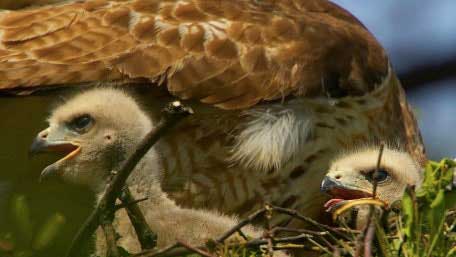
Are Lizards Poisonous for Hawks?
Well, lizards are not harmful to hawks. But there’s a chance. Hawks are not picky eaters. There is a wide variety of meat in their diet. And lizards take a huge portion of this list. There are some plausible hazards here.
Let’s have a look at those first:
Poisonous Lizards Don’t Pose a Threat
You may be wondering, some species of lizard have poison in their skin. But that’s not a problem. Just like other raptors, Hawks never eat the skin. So, the poison doesn’t pose a threat to them.
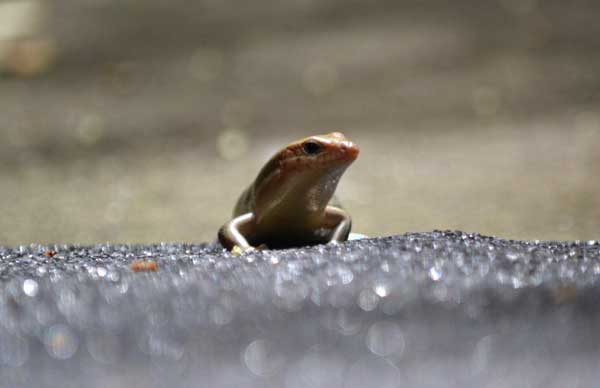
Even Lizard Venom Don’t Pose a Threat
Some species of lizards produce venom. But they don’t have sophisticated venom to inject it. The venom is concentrated in the head section. Mainly, they release the venom directly into the saliva. And this venom is there to weaken any lizard prey.
But hawks are intelligent birds. They avoid eating the lizard head. So, the venom is not a big problem for them.
Which Hawks Eat Lizards?
Not every hawk species prey on lizards. Basically, some hawk species residing in North American deserts or Arizona frequently hunt lizards.
Based on our research, here are the hawk species that are always on the hunt for lizards.
- Red-tailed Hawk
- Coopers’s Hawk
- Ferruginous Hawk
- Sharp-shinned Hawk
- Broad-winged Hawk
- Zone-tailed Hawk
- Osprey Hawk
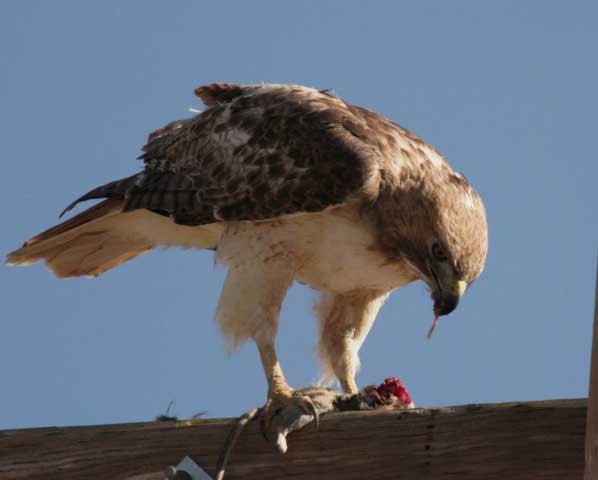
How Does a Hawk Kill Lizards?
Just like we said, hunting lizards is easy as pie for hawks. Thanks to their keen eyesight, they can spot even dead lizards. And the hunting process gets easier when the target is moving.
It only takes around 5 or 6 minutes to spot and snatch a lizard. Here’s how they do it:
First, they Scan for Pray
At first, the hawk will sit on top of a tree and scan for any lizard nearby. It doesn’t matter how far or high they are – the speed gives them an advantage.
If the lizard relies on camouflage to hide, the bird waits for a slight movement or shift.
A Glimpse of Movement
Suddenly, it can see something moving. The bird of prey is ready. But it’s in no hurry. It waits for a glimpse of the target. When it can see the target trying to move, the bird makes an approach.
Snatching the Lizard
The hawk catches the lizard within 5 to 6 seconds. Green Iguanas are the most common victims. They make an effort to escape. But the bird has its grip and there’s no way out.
The Hawk Pecks the Lizard
Normally, it will peck on the lizard’s body and look for soft skin. Usually, a hawk dips its bill in the lizard’s ear, causing it to bleed. And the dizzy lizard stops resisting.
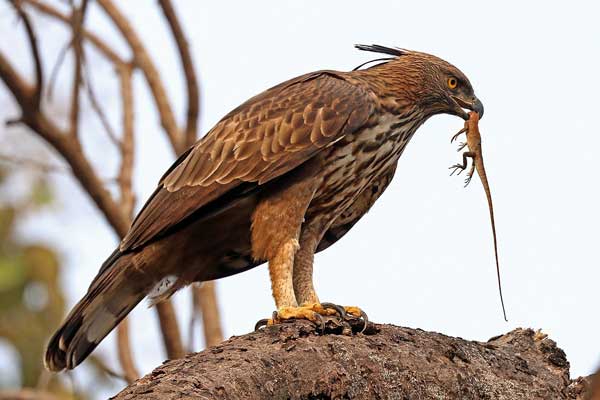
The Hawk Crushes the Lizards Brain
Finally, the hawk probes the lizard’s eyes. Doing so crushes the brain. This time, the lizard is dead for sure. While in the air, the bird eats half of the lizard. That’s brutal.
Frequently Asked Question
Here are answers to some questions we often face regarding this subject:
Yes, hawks are carnivores because their diet includes only meat. They eat just about anything as long as there’s meat.
Birds of prey or raptors dine on lizards. But most raptors hunt small-sized lizards instead of bigger ones.
Wrapping Up
Now, there should be no confusion regarding the question, “Do hawks eat lizards?” Hawks are carnivores, and they are adapted to eat other animals. Mainly, they hunt lizards or other reptiles for convenience.
Most reptiles are ectotherm, and they often visit the ground for sunlight. This is the primary reason why hawks can frequently hunt them. So, a lizard needs to hide effectively in order to escape the hawk’s grasp.
Do you want to know if hawks eat snakes or turtles? Read our articles about it to learn more.
